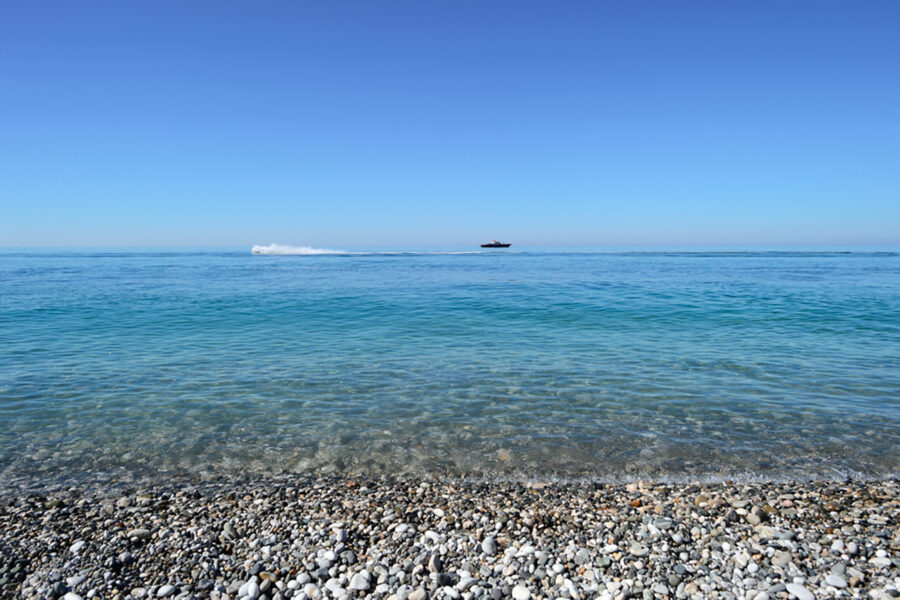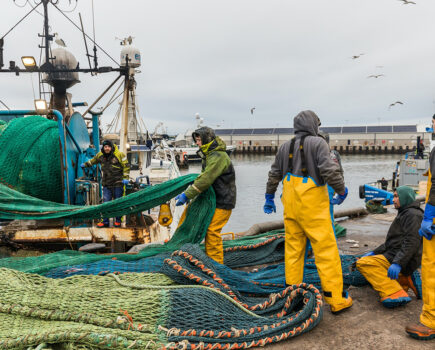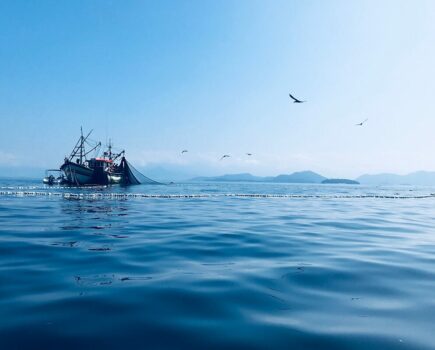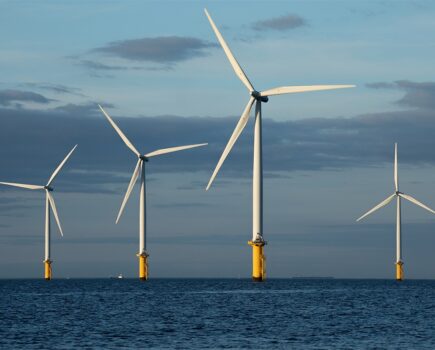UK pulls out of London Convention deal on 6-12 access.
The government has put in motion steps to secure exclusive control over the UK’s 12-mile limit, reports Tim Oliver.
DEFRA secretary Michael Gove announced last week that the UK has officially triggered withdrawal from the London Fisheries Convention, that gives historic rights to foreign vessels from five EU member states to fish in the UK’s six to 12-mile zone.
The London Fisheries Convention was signed in 1964, well before the UK joined the EU, and allows vessels from France, Netherlands, Belgium, Ireland and Germany to fish in the six to 12-mile zone. In 2015, vessels from these countries fishing inside Britain’s 12-mile limit caught an estimated 10,000t of fish, including mackerel and herring, worth an estimated £17m.
There is a two-year withdrawal period from the London Convention, similar to the Article 50 letter that began the UK’s two-year withdrawal from the EU.
“When we leave the EU, we will no longer be bound by the Common Fisheries Policy but without action, restrictions under the historic London Fisheries Convention would still apply. By withdrawing from the London Fisheries Convention, we will no longer be bound by the existing access agreements,” said a DEFRA spokesperson.
DEFRA secretary Michael Gove said: “Leaving the London Fisheries Convention is an important moment as we take back control of our fishing policy. It means that for the first time in more than 50 years we will be able to decide who can access our waters.
“This is an historic first step towards building a new domestic fishing policy as we leave the European Union – one which leads to a more competitive, profitable and sustainable industry for the whole of the UK.”
DEFRA said there will now be a period of engagement on the Fisheries Bill with the devolved administrations, fishermen, trade organisations, fish processors and the public ‘to make sure we deliver a deal that works for the whole of the UK’.
The Scottish government backed the move. Scottish fisheries secretary, Fergus Ewing, said: “The UK government’s decision to withdraw from the London Fisheries Convention is a move we have been pressing for some time now.
“Our priority is to protect our fishing industry, and allowing unrestricted access to our waters to remain through this convention clearly would not be doing that.”
The national fishermen’s federations welcomed the announcement. NFFO chief executive, Barrie Deas, said: “This is welcome news and an important part of establishing the UK as an independent coastal state with sovereignty over its own exclusive economic zone.”
SFF chief executive, Bertie Armstrong, said: “This measure is warmly welcomed – access to our rich fishing grounds will become a matter for us on withdrawal from the CFP. Leaving the London Convention as part of that sends a very strong additional message of commitment.”
But countries that will lose access to the UK’s 12-mile zone voiced concern at the development. Irish fisheries minister Michael Creed said the announcement was ‘unwelcome and unhelpful’.
He said: “It is a part of Brexit, and will be considered by the EU 27 member states and the Barnier team when the negotiations commence. The announcement will have no immediate effect as the withdrawal process from the Convention will take two years and will form part of the Brexit negotiations.”
Mr Creed said the UK also had rights to fish in parts of the Irish zone, and the London Convention access rights were incorporated into the CFP when Ireland joined the EU.
“The threats posed by Brexit to the Irish fishing industry were discussed recently with the Irish industry at a session of the SeaFest Conference in Galway. Brexit poses very serious challenges to the seafood sector and this announcement will form part of the negotiations,” said Mr Creed.
French fishing newspaper Le Marin said the impact of Brexit was ‘of great concern to the French fishing industry as a whole. Some major fishing regions, Brittany and Normandy in particular, are dependent on access to British waters’.
Commitment to sustainable fishing
Various green groups including Greenpeace, WWF, Client Earth and the Marine Conservation Society tried to pour cold water on the move, raising fears that it would lead to overfishing and damage relations with other EU member states in managing stocks.
But the SFF hit back, saying sustainable fishing would remain a key priority after Brexit.
Chief executive Bertie Armstrong said: “The idea that our exit, initially from the London Convention and then the CFP, will instantly herald a return to the old days of overfishing is preposterous and, frankly, insulting. Those who make such remarks have clearly not been looking closely at what has been going on in the industry.
“Observers and those who claim to be stakeholders in our industry need to understand that Brexit will lead to a redistribution of quotas, and not an increase.
“The industry has brought itself back from the edge of the precipice through its commitment to sustainable fishing, and most major stocks are now caught at or near MSY levels. Why on earth would we want to dangle our feet over the edge again?”
FFL: First step in ‘acid test’
Campaign group Fishing for Leave (FFL) said they were ‘delighted that the government has finally acted and that our strenuous efforts in highlighting and pressing this issue has paid dividends’.
“We have hammered this issue since we first highlighted the forgotten Convention that many thought non-descript. It has taken extensive lobbying to do so, and we would like to give a sincere thank you to our members, the public, Brexit groups, UKIP, numerous MPs, peers and the DUP for helping to ensure this Convention was scrapped.” The move was an important boost, especially for the inshore fleet.
The group said giving the two-years notice to scrap the Convention was one of the first ‘acid tests’ of the government’s resolve and commitment on Brexit, and was necessary to avoid diplomatic damage and legal challenges over continued EU access to UK waters.
FFL also issued a note of warning on previous wording used by the government that it intended to scrap the convention ‘to secure a strong position… if talks with the EU break down’.
“We hope that the strong hand is not being secured as a strategy to reinforce fishing as a strong lever to negotiate and barter with,” said FFL. “The government should be pressured extensively and unremittingly to ensure this doesn’t happen.”
FFL also said it was now time for the prime minister to clarify the wording of the Conservatives’ manifesto on fisheries, which suggested the government will only repatriate waters out to 12 miles rather than the full UK 200-mile EEZ.
Read more from Fishing News here.








